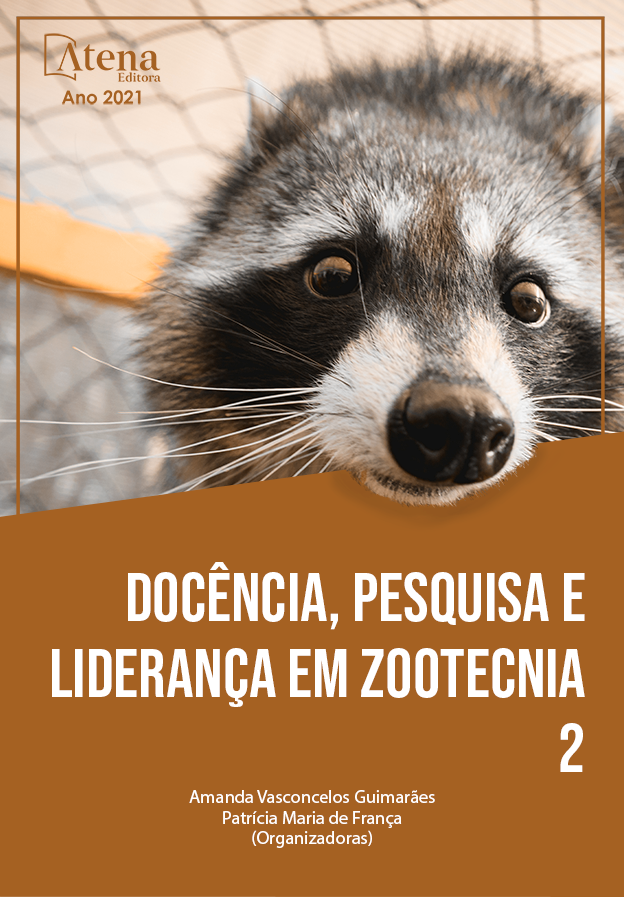
A POLINIZAÇÃO DE ABELHAS Apis mellifera EM DUAS TECNOLOGIAS DE SOJA
Ao visitarem as flores na coleta de néctar e pólen, as abelhas contribuem na polinização de diversas espécies vegetais, porém, o uso inadequado de defensivos agrícolas tem ocasionado perdas de enxames. É fundamental que o agricultor conheça o aumento produtivo das lavouras agrícolas devido à presença das abelhas e assim contribua para a sua conservação. Para isso são indispensáveis estudos que quantifiquem e avaliem o efeito da polinização em diferentes culturas. A soja (Glycine max (L). Merril.) é uma planta autógama e cleistogâmica, porém, estudos indicam que a presença de abelhas favorece a produtividade. O objetivo do trabalho foi avaliar os efeitos da polinização de espécies Apis mellifera na produtividade das tecnologias Roundup Ready (RR) e Intacta. O experimento foi realizado no IFRS Campus Ibirubá na safra 2019/2020 e o delineamento utilizado foi inteiramente casualizado. Em cada tecnologia foram realizados três tratamentos, livre visitação de polinizadores (LP), exclusão de agentes polinizadores (EP), e com Apis (CA), com cinco repetições. Foram avaliados a produtividade em kg por hectare e os componentes da produtividade. Os dados foram submetidos a análise de variância e as médias comparadas pelo teste de Tukey (P<0,05). Na variável produtividade os tratamentos não diferiram. Porém, a Intacta produziu 2720,97 kg/ha, 2608,37 kg/ha e 2804,98 kg/ha, respectivos LP, EP e CA, obtendo os melhores resultados em relação à RR. O número de legumes por planta não teve diferença entre os tratamentos na cultivar RR e foi superior na Intacta, 36,75 grãos/planta em média. O número de grãos por vagem obteve diferença significativa entre tecnologias para 2, 3 e 4 grãos e na Intacta o número de 2 grãos por vagem apresentou diferença significativa entre os tratamentos. É fundamental o incentivo a pesquisas na área de polinização para que formas mais sustentáveis de produzir sejam adotadas.
A POLINIZAÇÃO DE ABELHAS Apis mellifera EM DUAS TECNOLOGIAS DE SOJA
-
DOI: 10.22533/at.ed.6942111037
-
Palavras-chave: Apicultura. Polinizadores. Produção de grãos
-
Keywords: Beekeeping. Pollinators. Grain production.
-
Abstract:
When visiting the flowers to collect nectar and pollen, bees contribute to the pollination of several plant species, however, the inappropriate use of pesticides has caused losses of swarms. It is essential that the farmer knows the productive increase in agricultural crops due to the presence of bees and thus contributes to their conservation. For that, studies that quantify and evaluate the effect of pollination on different cultures are indispensable. Soy (Glycine max (L). Merril.) Is an autogamous and cleistogamic plant, however, studies indicate that the presence of bees favors productivity. The objective of the work was to evaluate the effects of pollination of Apis mellifera species on the productivity of Roundup Ready (RR) and Intacta technologies. The experiment was carried out at IFRS Campus Ibirubá in the 2019/2020 harvest and the design used was completely randomized. In each technology, three treatments were carried out, free visitation of pollinators (LP), exclusion of pollinating agents (EP), and with Apis (CA), with five repetitions. The productivity in kg per hectare and the productivity components were evaluated. The data were subjected to analysis of variance and the means compared by the Tukey test (P<0,05). In the productivity variable, the treatments did not differ. However, Intacta produced 2720,97 kg/ha, 2608,37 kg/ha and 2804,98 kg/ ha, respective LP, EP and CA, obtaining the best results in relation to RR. The number of vegetables per plant had no difference between treatments in cultivar RR and was higher in Intacta, 36,75 grains/plant on average. The number of grains per pod showed a significant difference between technologies for 2, 3 and 4 grains and at Intacta the number of 2 grains per pod showed a significant difference between treatments. It is essential to encourage research in the pollination area so that more sustainable ways of producing are adopted.
-
Número de páginas: 15
- Júlia Zanrosso Vieira
- Breno Eduardo de Souza
- Talita Vieira Broca
- Oderlei Cristiano Schroeder
- Dainara Regina Roesler
- Emerson Soares Lopes
- Milton José Busnello
- Julhana da Silva Santos
- Fabiel André Cossul
- Marcos Paulo Ludwig
- Renata Porto Alegre Garcia
- Gabriela Machado da Silva


